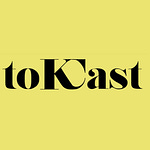Welcome to another newsletter. Now yes, I did promise these would be shorter - much shorter than regular podcasts and yet this is still quite long - and many are crying out “Substack: you’re doing it all wrong!”. But I did also give myself an “out” for these first editions. And what I’ve done is actually split this one into 2 parts - so Newsletters 2 and 3 will come in quick succession and yes - apologies - Newsletter 3 is extra long as well. I actually swapped things around because the first newsletter was supposed to lead naturally into a theme that was the same - but events of the last few days meant I have swapped things around a little bit. In any case I’m still running long.
I can promise number 4 will be much, much shorter. I’m getting used to a bit of a workflow with this and now that I’ve figured out how to quickly get out the longer editions fast, the 5 minute versions should be easy indeed in the weeks and months to come.
For those unaware - the next episode in my discussion of Steven Pinker’s book “Rationality” is out now. We’re up to chapter 4 “Probability and Randomness”. It’s a topic I have focussed on personally in depth with reading, reflecting, editing going back and forth between books and talks and lectures and so - I’ll say no more about it here beyond the fact we are taking a very different angle on things. When I say “we” I mean: David Deutsch but with me trying to explain his perspective (which is now my perspective) in my own words. If you’re at all interested in the topic - go to episodes 111 and now also 113 of ToKCast to hear me rattle on about probability and randomness.
I can’t let the moment pass by without mentioning the Elon Musk Twitter situation: I think it’s all very good. The very debate itself is a nice one: the meta-argument. It’s an argument about how arguments can be had. Entirely freely, almost entirely freely or not freely at all? Privatisation, single owners, multiple shareholders or state controlled? It’s all happening there.
On the one hand I entirely agree that Twitter can, in its present form, do what it likes and behave as it wishes within the bounds of the law. It can ban who it likes and set whatever rules it likes and be as biased as it likes. Like a newspaper. I know there’s this argument in the USA about it being a platform and not a publisher that in theory gives it privileges because it’s not ultimately responsible for what is published on the platform - unlike with an actual publisher like CNN or the NY Times. So therefore it should not be so censorious or trigger happy on the ban button. I get that. But personally I’m more about the deeper moral principle than the spirit of some transient law. And I think the deeper moral principle is that private companies can and should be able to set policies (within the legal framework) more or less as they like. If they want to be highly politically biased - they should be able to. Because I think neutrality is next to impossible as a standard anyway and for those of us outside the USA who have taxpayer funded public (state!) broadcasters who, in law(!) have some requirement to be neutral or unbiased and yet can be rather consistently relied upon to be the exact opposite: highly biased. And they are almost always (in the case of the BBC and ABC in my experience) biased in a particular direction and nothing much ever seems to be done about it. Even if the government is being consistently attacked (often unfairly) by the ostensive “state broadcaster” - the governments seem to do nothing about it. To make this more clear: the ABC in Australia leans strongly left. So strongly left that the Greens party gets a very easy run. But the conservative, libertarian and those who lean more national - always get brickbats from the public broadcaster. And even if the conservative and liberal governments - who provide the funding to the broadcaster - suffer in the polls because of consistent bad press from the ABC, it seems no conservative politician wants to do much about it. So if the government and legal system cannot keep their own bureaucratic agencies in line in some democratic jurisdictions - well, I am less concerned and animated about the policies and actions of private companies. To me corporations - even social media companies - are like private individuals. They can be riddled with inconsistencies. Even obvious ones they don’t seem animated to fix. So I disagree with Elon Musk’s sentiments on all that. He argues Twitter is the defacto public square. I don’t think it is. Were it truly this then the US government in particular would have some sort of responsibility to, for example, give Donald Trump his account back. I don’t think they do have any such responsibility. But if Donald Trump was being stopped by protestors from climbing on a literal soap box in a literal government owned national park - then yes. That would be a place where someone had a responsibility to protect his rights.
But forget Donald Trump and whether he is on Twitter or not. Who is on Twitter, really? I know far more people in my real life who never have used Twitter and aren’t interested and so on. But they have opinions they do indeed share elsewhere. So if Twitter is the defacto public square - what about them? Must they all get accounts or else expect never to be able to voice an opinion to be heard by the general public in this new virtual world? If Twitter is the de facto public square what about Facebook? Facebook apparently has six times the number of users (about 3 billion) to Twitter’s 500 million. And I’m being very generous there with Twitter’s numbers. I cross referenced this data in 3 places:
1. https://www.statista.com/statistics/272014/global-social-networks-ranked-by-number-of-users/
2. https://datareportal.com/social-media-users
3.https://en.wikipedia.org/wiki/List_of_social_platforms_with_at_least_100_million_active_users
All these links contain 2022 numbers or at least the latest available.
On Wikipedia Twitter is listed at number 17 globally in terms of popularity as a social platform. So yes, yes: they’re not all social media. I’m comparing apples and oranges. But this “Twitter is the public square” claim over eggs things. I think it’s a function of people in the twitter bubble. And that includes me - of course it includes me. But it’s a biased sample. Now perhaps as a percentage of their respective populations, Twitter has a high proportion of the citizens of the USA or the UK or Australia on Twitter. The best I could find is that about 1/5 of the people say they use Twitter in the US. One wonders who they are asking in these surveys and where. I imagine lots of San Franciscans are using Twitter. I imagine New Yorkers. Are many from smaller towns?
I live in Sydney and I know some people around me use Twitter. But not many. As soon as I get out of Sydney - of a largish city - I know way fewer people who have a Twitter account. Younger people use Instagram or TiKTok. Older people use Facebook. You get the point. Many know about all this far more than I do and much has been written about and analysed on the topic. The point is that Twitter does influence main stream media - a lot. And main stream media influences Twitter. It is like an ouroboros - that ancient symbol of a dragon or serpent or snake eating its own tail. Regular media and Twitter feed on each other. It’s one entity - feeding itself often with triviality often with political gossip. And that’s the big issue people make about it.
But yes, of course there is a whole other side of twitter some of us focus on - almost 90% of the time (if we can manage!). That other side is finding communities, engaging in non-political discussions and as a locus for conversations about something other than the news of the day. Often, all of that sort of thing by its very nature is largely unaffected - (though not entirely) by Twitter’s political bias and censorship policy. But that doesn’t mean we agree with such a policy. I can disagree with a claim - like that from Elon - that Twitter is the de-facto public square (which might be narrowly valid if we are talking about elites and a particular breed of intellectuals and (of course) especially media and political elites and so on) - and yet on the other hand I can also disagree with Twitter’s policies on censorship and political leanings. I don’t think they’re actually a public square - de-facto or otherwise BUT I do think it would be great if it could at least tend in that direction as far as possible.
Twitter should continue to have a right to make whatever policies they like but one wishes their policies were more reasonable. Which is why I like the idea of Musk or someone (or someones) buying the whole lot and changing their policies somewhat in the direction of less censoriousness. I think the more open speech the less there will be widespread accusations of or belief in some great conspiracy which can be just as corrosive as actual conspiracy. And there is at least some evidence that media and social media platforms have colluded on policies for political reasons - which is a kind of conspiracy. But not well disguised.
So if Twitter was bought and opened up so that people on all sides of any debate could be heard - great. Like Musk I’d describe myself as a free speech absolutist but I’d probably disagree with him at the margins about what that amounts to. Ultimately I don’t mind the small differences people have so long as they tend very strongly in the direction of: if you’re a bit unsure about whether the speech is acceptable or not - allow it. Which is precisely what Musk said in his chat with Chris Anderson. And everyone should go and watch the interview. I think it’s great.
He begins the whole thing with some remarks about how he was on the money in his predictions over the years about how many Tesla cars would need to be manufactured and would be manufactured and therefore would be sold year on year - so he had a good explanation about the market and manufacturing in the factory which existed in the industry he is most knowledgeable about. But he also admitted he was wrong about self driving cars because he realised their ubiquitous uptake might require “stronger AI” - AGI in other words (at least he seems to insinuate this). Because he thinks this he was prophesying when it would happen and under what conditions so he got it all wrong because he doesn’t actually know what it takes and he’s also (we should even say “so”) rather pessimistic about AGI - as he hints at in this interview and he said on the Joe Rogan podcast. These are sentiments he has expressed elsewhere as well and as we know here - prophesy which we define as guessing the future without a good explanation which means in many cases especially guessing at a future that will be affected by the creation of more explanatory knowledge - seems to always lead a majority of intellectuals down a pessimistic path. The thing is it does not matter who you are, what your “intelligence” or creativity, knowledge or domain of expertise is; doesn’t matter if it’s you, or me, or David Deutsch or Elon Musk or the Pope - if you are trying to tell us what the year 2026 is going to be like in either precise or general terms with some specifics (like the arrival of actual artificial intelligence or actual flying cars or what society and politics, war and viruses will be like then) - forget it. All those things depend on what knowledge people will create. But if it’s how many more units come off the productions line making some assumptions that are not much impacted by external events - well it can still all go terribly wrong - but if you’re working in that exact factory - and selling those exact units - and as Nassim Taleb says you’ve got a heck of a lot of skin in the game - well, maybe we can listen to you.
The end of the interview is great. Let’s just hear the man in his own words though:
He said: “I love humanity and I think that we should fight for a good future for humanity and I think we should be optimistic about the future and fight to make that optimistic future happen.”
So at least he ends in optimism even if he did begin in pessimism. He is interesting as an entrepreneur and thinker - because of this tension in his worldview. I think, unfortunately, he has been influenced by some pessimistic intellectuals (Bostrom chief among them, but others who are associated with the “Effective Altruism” movement and various other allied, modern tech-religious groups like “Singularians” and so on). But all that said: he ended on optimism and that is my main takeaway. It’s becoming a thing - it really is and I can’t top what he says there. It is a reaction against this pervasive “the world is all going to hell and getting worse” perspective and so optimism is ramping up in reaction.
What I want to add here is that it’s one thing to say you hope and expect the world to get better. But what we’re doing here from “the Beginning of Infinity” perspective (if it is to have some kind of name, perhaps) is connecting that hope or expectation to reality - grounded in a coherent worldview so we can explain why it’s been getting better and why we should expect it to continue getting better. So it’s not only what is happening - but why. And the why is what we need to defend.
So that’s the end of newsletter 2.















Share this post